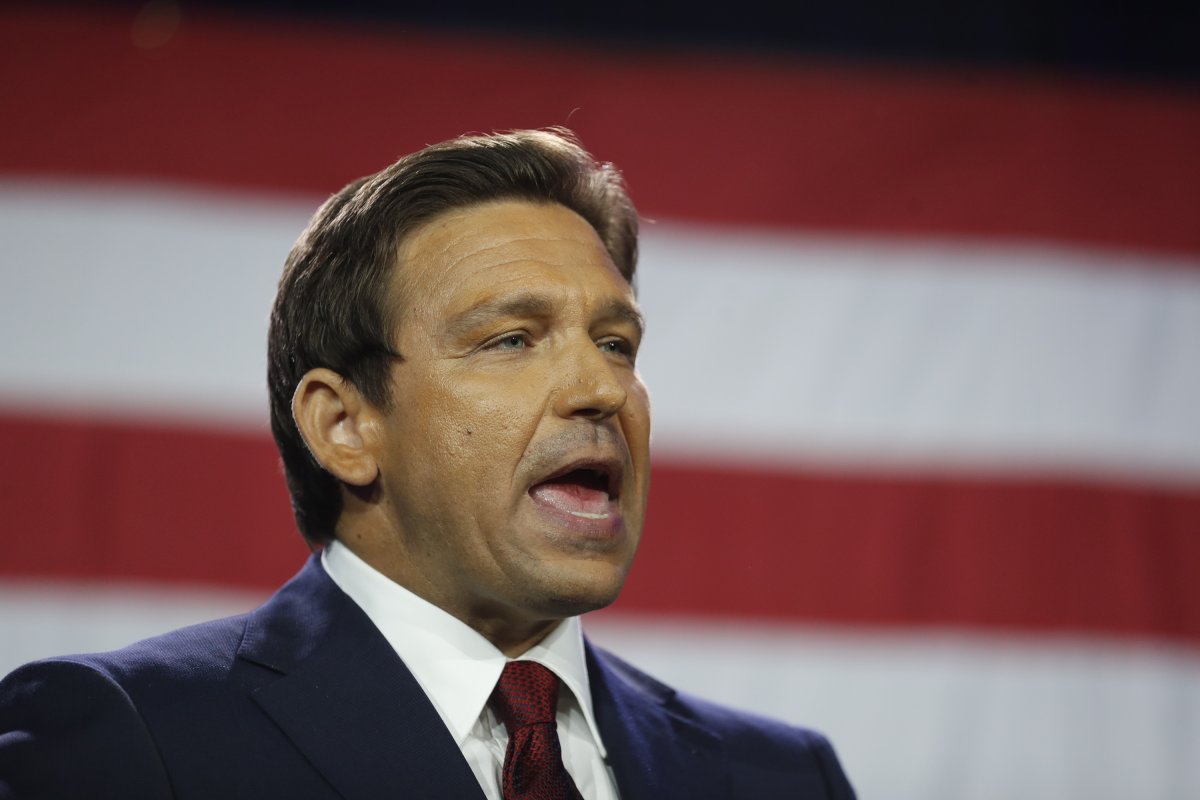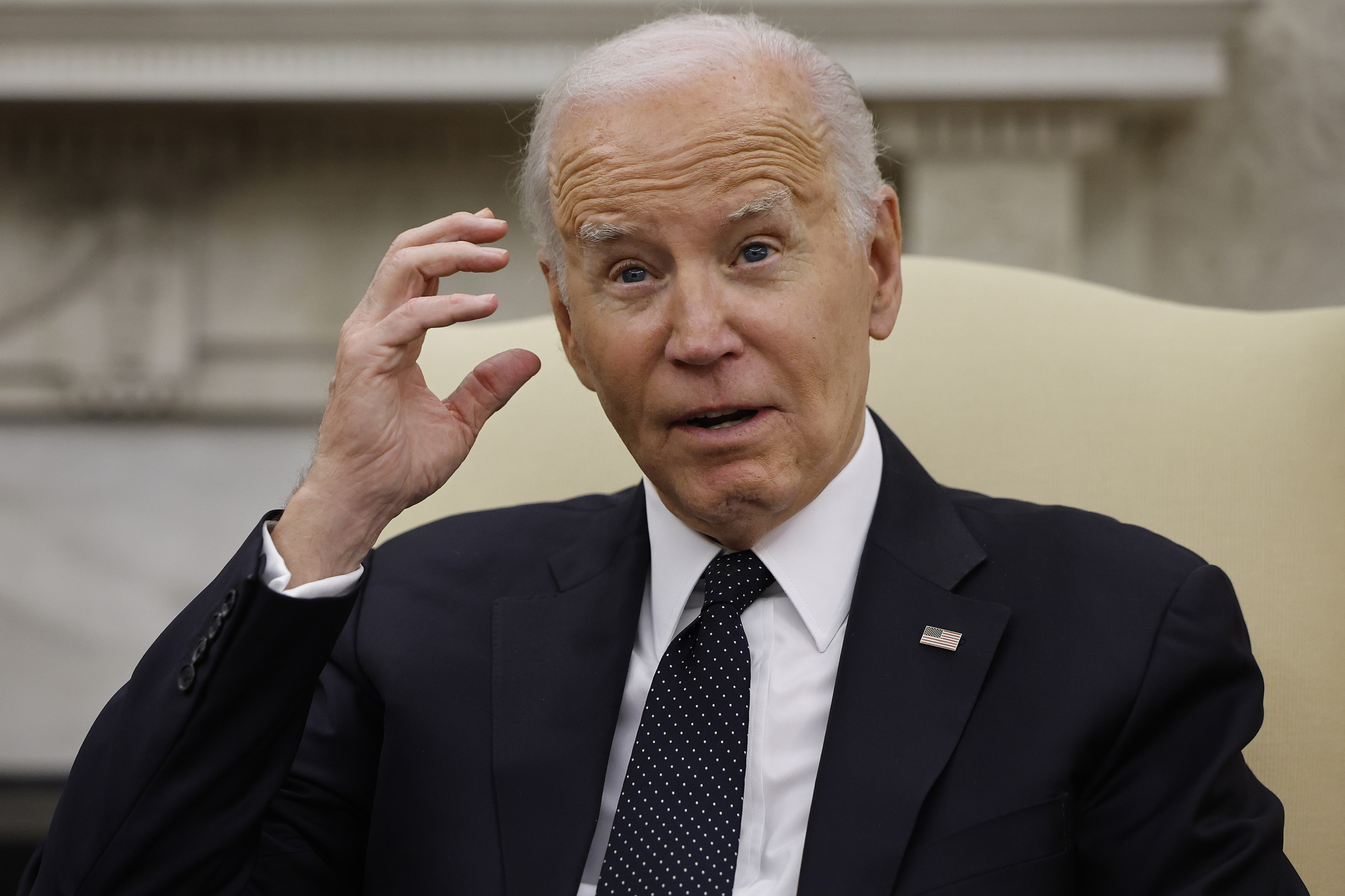"Florida is where woke goes to die," says the state's governor and likely future presidential candidate, Ron DeSantis. Florida Chief Financial Officer Jimmy Patronis home drove the point last week, when he announced that our free state will divest $2 billion from BlackRock, the behemoth asset management firm run by lifelong Democrat Larry Fink.
At issue is BlackRock's use of so-called "ESG"—"environmental, social, and governance"—principles to coerce companies in which it invests to adopt policies demanded by the radical Left. Instead of maximizing investor profits by addressing standard business considerations, BlackRock's dubious priority, in effect since at least 2018, is to use its massive financial leverage to foster "progressive" social and cultural change and, in Fink's guilty white liberal formulation, change the nature of global capitalism itself.
"Using our cash to fund BlackRock's social-engineering project isn't something Florida ever signed up for," Patronis said in a released statement, "It's got nothing to do with maximizing returns and is the opposite of what an asset manager is paid to do." Accordingly, Florida will immediately remove $600 million in short-term investments from BlackRock and freeze another $1.43 billion in long-term securities, pending their reassignment to new management in early 2023.
The move follows an August 2022 resolution by Florida's Board of Administration, chaired by DeSantis, which requires financial managers to invest in a way that "prioritizes the highest return on investment" and specifically excludes ESG considerations.
In October, Louisiana and Missouri also removed substantial amounts of capital from BlackRock's management, while a total of five states have placed general restrictions on ESG investments.
BlackRock's ESG integration policy statement mysteriously became "unavailable" on its website in the hours after Patronis's announcement, but other material that remains accessible should sound off alarm bells for any responsible investor. BlackRock is "committed to putting sustainability at the center of our investment process," one such passage reads, "based on the conviction that integrating sustainability-related information into the investment process can help our portfolio managers manage risk and make better informed investment decisions." BlackRock makes no attempt to claim that a conviction-based investment strategy has ever created meaningful financial gain for investors, but it does seem worryingly at ease telling Americans that they should entrust their retirement savings—the firm's major asset category—to somebody else's idiosyncratic feelings.
In another odd statement, BlackRock insists "there is increasing awareness that material ESG factors can be tied to a company's long-term performance." Whether there is any actual evidence of such a connection is an unanswered question—likely because there is none—but the semantic sleight of hand seems intended to push woke ideology over the best financial interests of investors who might not be "aware" of where their money is going.

More mercenary considerations may also be at work. In 2021, no less an authority than Tariq Fancy, who served as BlackRock's first "global chief investment officer for sustainable investing," blew a whistle on the entire ESG-based investment industry and denounced it as "vacuous" and a "ruse." He also alleged that investment firms bill higher management fees for ESG funds than for ordinary funds, thereby incentivizing their own promotion of ESG. According to figures reported by The Wall Street Journal, fees for ESG funds average about 40% higher than fees for standard funds. That's a lot of greenbacks for green energy. But even then, as Fancy has suggested, "it's not totally clear" if investments directed toward ESG goals, including more measurable ones such as environmental protection, make any practical difference. It could be that they only exist to signal virtue and pad revenue sheets due to the higher fees, allowing BlackRock to pay Fink his $36 million salary.
Regardless of the rationale, Paul S. Levy, who founded New York private equity firm JLL Partners and is now a Florida resident, told me that "BlackRock and its ilk are violating their obligations to the fiduciaries and should be held to account for infusing investment decisions with their personal values and political views."
Levy's new home state leaves no doubts on the issue. "I'm signing up to take care of the state of Florida's money and look out for the taxpayers," Patronis said in an accurate summary of his job description a day after his announcement.
There is ample evidence that the free market is joining with responsible state governments to reject BlackRock's tomfoolery. Netflix, which aggressively adopted diversity, equity, and inclusion ("DEI") principles into its corporate strategy—not coincidentally after receiving billions in investment from BlackRock—watched its stock price plummet from an all-time high of $690.31 in October 2021 to just $166.37 in June 2022. Defying projections that the streaming service would add 2.5 million paying subscribers in 2022, it instead lost 1.5 million subscribers in the first two quarters of this year.
No sane person could describe this outcome as a success, but Netflix began to recover as soon as it jettisoned DEI, embraced free speech principles, laid off hundreds of its "diversity"-minded content creators, and modified its content accordingly. As of last Friday, its stock price was back to $320.41. In the third quarter to 2022, the service added 2.4 million subscribers. BlackRock's ownership stake has correspondingly declined, from 6.6% in March 2020 to 4.2% now. Coincidence?
Astonishingly, BlackRock still claimed to be "surprised" by Florida's divestment. But now that it realizes not all of its investors are self-abnegating MSNBC viewers, BlackRock is clearly in defensive mode. Attempting to gaslight the third-most populous state's investors, it issued a risible statement declaring, "We are disturbed by the emerging trend of political initiatives like this that sacrifice access to high-quality investments and thereby jeopardize returns, which will ultimately hurt Florida's citizens." One might wonder if "high-quality" is the same as "profitable," or if the jeopardized "returns" are "financial" in nature, but the issue never would have arisen without BlackRock's reckless politicization of Floridians' investments.
"Fiduciaries should always value performance over politics," the statement patronizingly continued. Maybe now BlackRock will do that, too.
Paul du Quenoy is president of the Palm Beach Freedom Institute.
The views expressed in this article are the writer's own.
Uncommon Knowledge
Newsweek is committed to challenging conventional wisdom and finding connections in the search for common ground.
Newsweek is committed to challenging conventional wisdom and finding connections in the search for common ground.
About the writer
To read how Newsweek uses AI as a newsroom tool, Click here.






